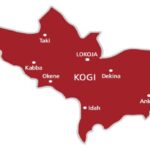Those who passed the Petroleum Industry Bill (PIB) a few days ago should not congratulate themselves yet because their job is far from over. That bill as passed is bound to create more problems in the host communities than it can solve.
This version of the PIB is nothing short of trying to quench raging fire with crude oil. The trivialisation of the interests of the host communities left the whole process defective. Of course, it cannot work as it is. The natives are not happy with this PIB. They have said so through diverse voices and may ferment trouble with its implementation.
- Bandits Abduct Jaba Paramount Ruler In Kaduna | TRUST TV
- We have rescued over 17,000 victims – NAPTIP
From the word go, it was clear that the intention behind the PIBl as conceived by the government was to bring all parties involved in Nigeria’s oil and gas industry to a common ground. The purpose was to balance or harmonise their conflicting interests by recognising the role of each partner in the maze of combatants that characterise the highly volatile oil and gas industry.
These interest groups included the host communities, the oil and gas E&P companies, the government as an entity and of course government officials who sometimes represent their own interests as distinct from the authorities they pretend to represent. There are also oil magnates, the powerful players who move and shake the industry, having taproots reaching far through their network of boys in the industry.
It is this disparate maze of interest groups that make this industry such a dangerous war zone, where various interest groups invaded the oil-producing region to grab whatever their hands can reach. In the process, the real stakeholders who are host communities, those who bear the brunt of oil exploitation and exploitation, are left out of the scheme of things.
The consequences were clear but regrettable. In the early 2000s, this writer as a reporter covering the industry visited the Niger Delta and saw first-hand the impact of oil and gas production on the region. Wading through the meandering creeks, the rivers, swamps and land areas, one saw the devastation from oil in its raw form. From Abonema Wharf on the sea to Kula Kingdom, the travails of the natives in oil-laden communities were evident.
In Ogoniland, the charred remains of flora and fauna, oil wellhead (called Christmas Tree, because of its shape) still dripping with oil and smoke oozing out after the fire had stopped), were symbolic of the extent to which people’s lives and livelihood had been destroyed because of natural resource exploitation.
That period was also the time when militancy in the region was at its peak. Oil and gas companies know this because they paid dearly for the neglect of the communities. The natives or their representatives rose in their rage and took on the operators. The impact left a sour taste in the month. Nigeria as a country felt it, with declining crude oil output and even a decline in exploratory activities in the region. While the oil companies responded to this in part by moving further afield to the offshore and deep offshore territories, that did not entirely solve the problem.
Those who systematically watered the original document down, producing in the process various versions of the legislation, know clearly that what they dished out is an open invitation to a rekindling of the days of restiveness in the host communities. Some twenty years ago, the government then detected a potential danger sprouting out of the oil communities and concluded that that fire needed to be quenched before it blew out of hands. Twenty long years passed, and the nation’s lawmakers, as well as the oil and gas community, know that their job is not over on this contentious matter. PIB was expected to be a model of conflict resolution in resource control/management.
The complexity of the PIB is a mere subterfuge and should not be allowed to overshadow the purpose of this piece of legislation. On the one hand, it is a political economy document that addresses the nexus between politics and economy, especially the distribution of wealth. It is also a microeconomic approach to resolving a mesh of complex issues that simply boils down to the question: how do you reward assets or economic entities in a production system? How much and for what reasons should accrue to everyone or agent whose resources are being used or pooled together to create wealth?
Compensation for resources, whether labour, land, capital, or entrepreneurship is still a contentious issue. It’s an ongoing debate and will probably not come to an end. To the list has been added the environment, this space comprising the land, air and the seas, which belongs to all humans. In the new way of reasoning, what happens to the environment as a result of economic activity should be captured in the cost of the resultant goods and services and be charged for.
Mineral extraction is one of the most destructive activities to undertake in man’s process to exploit nature for his economic and social advancement. The extractive industries – solid minerals mining and oil and gas exploration- have a peculiar impact in this regard. They affect not only the health of humans but also the health of the environment. There have been documented cases of the outbreak of diseases, including cancers, arising from oil exploration in the host communities. These are part of the cost of a barrel of crude oil from the communities. To the extent that this is not reflected in the costing of oil from Nigeria, to that extent will restiveness in these places endure.
In this regard, the Host Community Development Fund, the epicentre of the controversy over the PIB, should be seen as an honest desire to put a price tag on the cost to the community of oil and gas exploration and production. This price should cover such things as pollution and degradation of air, water and land resources. The hullabaloo over it is uncalled for and the reduction of the value of this contribution by the oil exploration companies, from even five per cent to three per cent, is most unfortunate.
Microeconomic theory underpins the need for full costing of all resources used in producing goods and services. The need for this arises from the fact that most of the resources have alternative uses. Therefore, without full costing of assets, their true worth, which is the forgone alternative, would be missing in the economic equation. And without this, the pricing of the good and/or service produced will be defective because it will fail to capture all the values embedded into it.
Therefore, it is a ruse for Nigeria to be aiming at achieving a low-cost oil production of about $10 per barrel, when a major cost element like the environment is underpriced or neglected.
In the past, markets did not care about intangible costs, which led to the idea of market failure. Markets fail in part when prices do not reflect the true value of resources used in the production process.
Now, all resources must be costed and priced appropriately. It also has a moderating effect on organisations. Knowing that they will be held accountable for all their activities, they are more likely to be careful in the execution of their projects. This is expected to be so in the oil and gas industry going further.

 Join Daily Trust WhatsApp Community For Quick Access To News and Happenings Around You.
Join Daily Trust WhatsApp Community For Quick Access To News and Happenings Around You.


